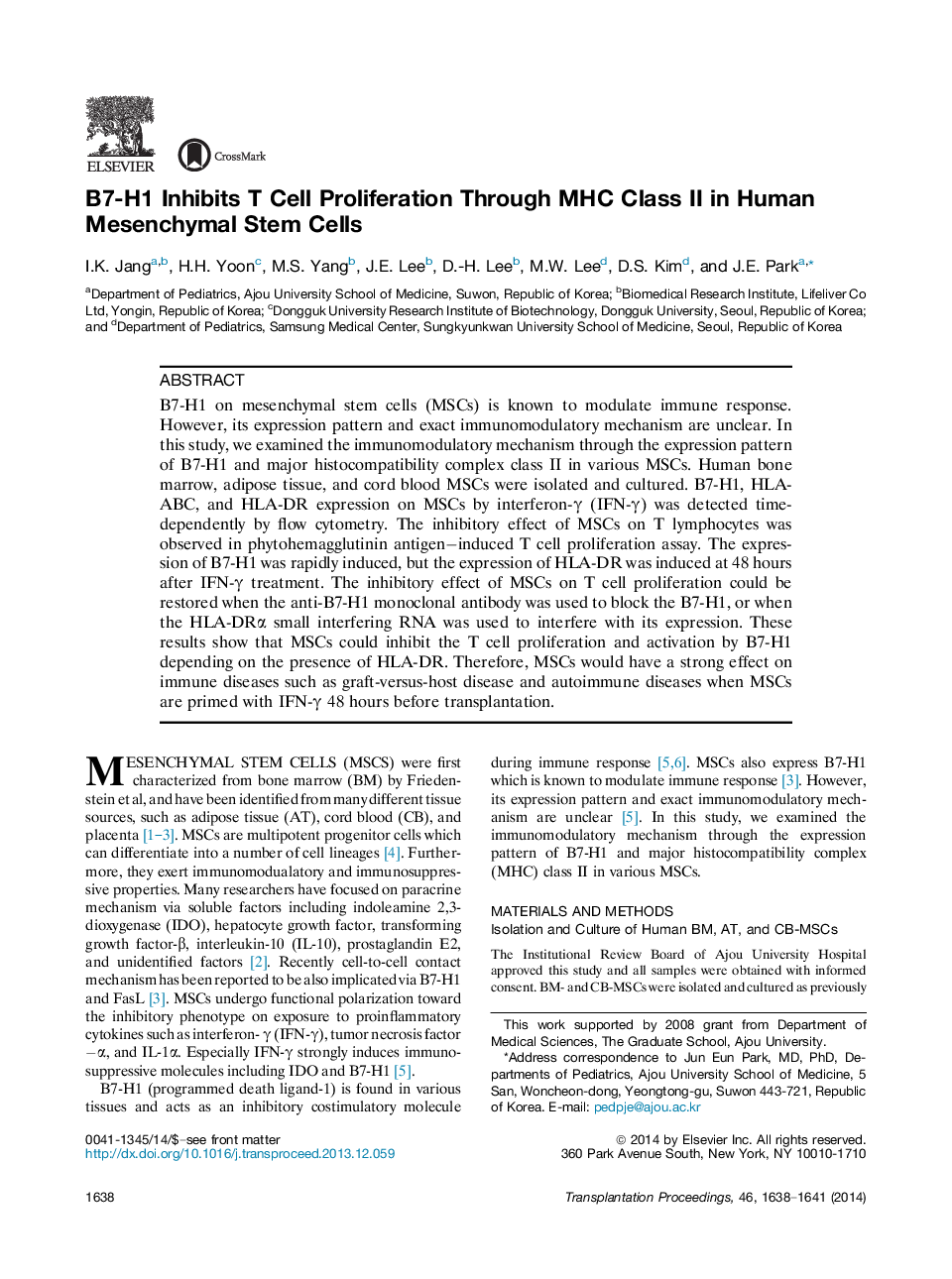| Article ID | Journal | Published Year | Pages | File Type |
|---|---|---|---|---|
| 6246346 | Transplantation Proceedings | 2014 | 4 Pages |
B7-H1 on mesenchymal stem cells (MSCs) is known to modulate immune response. However, its expression pattern and exact immunomodulatory mechanism are unclear. In this study, we examined the immunomodulatory mechanism through the expression pattern of B7-H1 and major histocompatibility complex class II in various MSCs. Human bone marrow, adipose tissue, and cord blood MSCs were isolated and cultured. B7-H1, HLA-ABC, and HLA-DR expression on MSCs by interferon-γ (IFN-γ) was detected time-dependently by flow cytometry. The inhibitory effect of MSCs on T lymphocytes was observed in phytohemagglutinin antigenâinduced T cell proliferation assay. The expression of B7-H1 was rapidly induced, but the expression of HLA-DR was induced at 48 hours after IFN-γ treatment. The inhibitory effect of MSCs on T cell proliferation could be restored when the anti-B7-H1 monoclonal antibody was used to block the B7-H1, or when the HLA-DRα small interfering RNA was used to interfere with its expression. These results show that MSCs could inhibit the T cell proliferation and activation by B7-H1 depending on the presence of HLA-DR. Therefore, MSCs would have a strong effect on immune diseases such as graft-versus-host disease and autoimmune diseases when MSCs are primed with IFN-γ 48 hours before transplantation.
